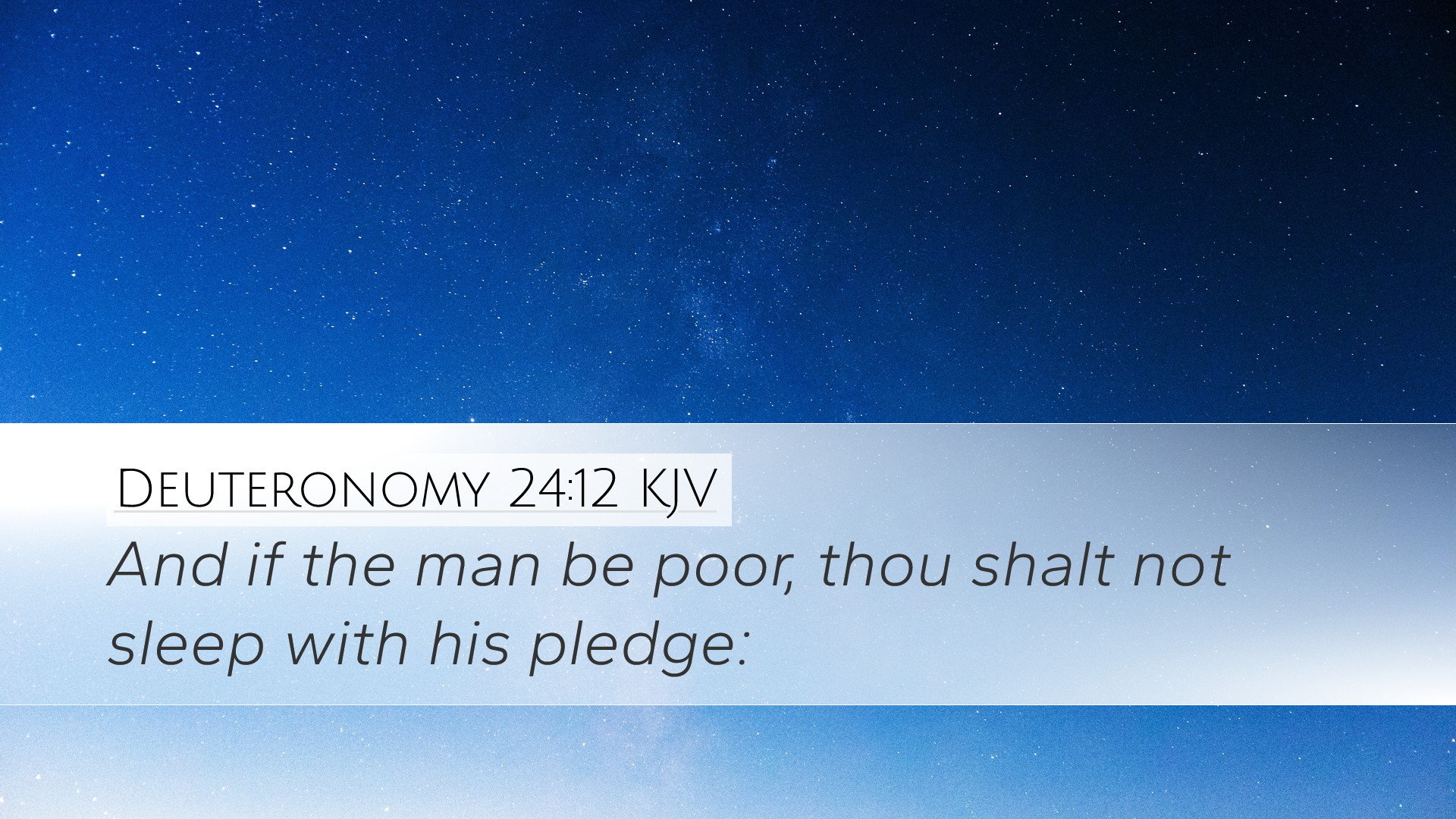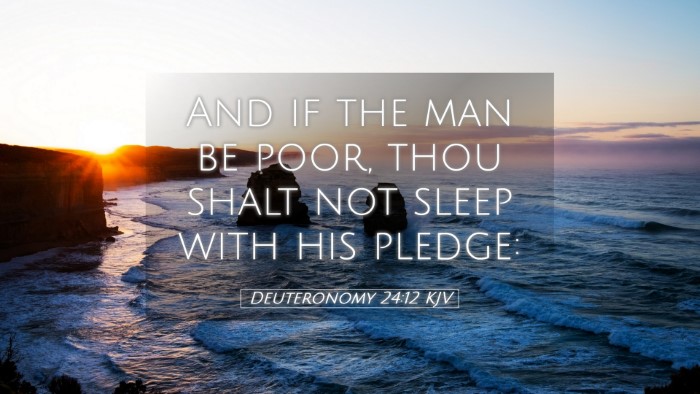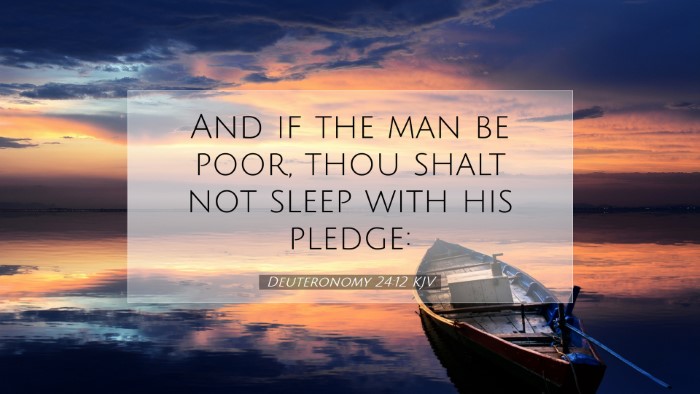Deuteronomy 24:12 - A Commentary Overview
Verse Context: Deuteronomy 24:12 states: "And if he be a poor man, thou shalt not sleep with his pledge." This verse is part of the Mosaic Law, providing instructions to the Israelites regarding social justice and personal responsibility toward the poor and vulnerable in their society. The verse emphasizes the importance of compassion and ethical behavior in dealing with those in need.
Commentary Insights
1. Matthew Henry's Perspective
Matthew Henry emphasizes the importance of the treatment of the poor in this verse. He notes that the pledge, which refers to a collateral or guarantee for a loan, should not be abused. Henry points out that God considers the needs of the vulnerable and commands His people to reflect His mercy in their dealings with one another.
Henry remarks that while lending is permissible, it should be done with an understanding of the borrower’s circumstances. He highlights that God’s law seeks to protect the dignity of individuals, especially those who are economically disadvantaged. This specific instruction serves as a safeguard for the poor, ensuring that they are not stripped of their basic necessities, such as a coat, especially when they are in dire need.
2. Albert Barnes' Commentary
Albert Barnes adds depth by discussing the social implications of the command. He points out that a poor man's pledge is particularly significant because it represents not just an item of value but also his attempt to navigate difficult financial circumstances. Barnes indicates that the prohibition against taking the poor man's pledge as a means to gain wealth underscores the ethical responsibility of those in positions of affluence.
Additionally, Barnes reflects on the cultural relevance of the pledge in ancient Israel, where the practice of lending and borrowing was common. He indicates that this law not only seeks to protect the poor but also fosters a sense of communal responsibility, urging the rich to act with kindness and understanding. He insists that this command reflects a broader principle: the notion that humanity ought to exercise compassion and mercy towards one another as a reflection of God’s character.
3. Adam Clarke's Interpretation
Adam Clarke offers a detailed analysis of the practical implications of this law. He points out that taking a pledge from the poor and then failing to return it at night would not only exacerbate their poverty but would also lead to significant emotional distress. Clarke highlights the importance of understanding the socio-economic context of ancient Israel, where a poor man’s coat might be his only means of warmth and protection.
In his interpretation, Clarke connects this verse to broader biblical themes of justice and mercy, arguing that this commandment encapsulates God’s desire for His people to protect one another’s dignity. Furthermore, Clarke stresses that this verse underlines the seriousness with which God views the welfare of the poor, challenging those who might use their wealth to exploit the vulnerable. The commentary invites readers to consider how such principles are applicable in contemporary society, urging a call to ethical living and social responsibility.
Key Themes and Applications
- Compassion and Mercy: The directive in Deuteronomy 24:12 highlights God's call for His people to embody compassion in their interactions, continuously charging believers to consider the plight of the vulnerable.
- Protection of the Vulnerable: The command serves as a benchmark for justice, emphasizing that financial transactions should not lead to the oppression of the needy but should uplift them.
- Ethical Responsibilities: This verse brings to light the ethical obligations that come with wealth and power. It challenges individuals and communities to be vigilant against potential exploitation of those with less.
- Social Justice: The underlying message of protecting the dignity of the poor resonates strongly with modern conversations on social justice and equality, urging continuous examination of how society treats its most vulnerable members.
Conclusion
In summary, Deuteronomy 24:12 serves as a profound reminder of the compassionate heart of God towards the downtrodden and the ethical responsibilities of His people. Pastors, students, theologians, and scholars alike are invited to delve deeply into the implications of this verse, considering how it informs our understanding of justice, mercy, and communal responsibility in both ancient and modern contexts. As we reflect on these insights from public domain commentaries, let us be inspired to live out the principles of love, compassion, and ethical integrity in our daily lives.


